
-
 Five sports stars to watch in 2025
Five sports stars to watch in 2025
-
Plane with 181 on board crashes in South Korea, killing 29

-
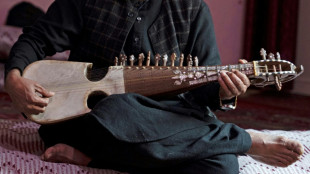 UNESCO-listed musical instrument stifled in Afghanistan
UNESCO-listed musical instrument stifled in Afghanistan
-
Excited Osaka says 'deep love' of tennis keeps her going

-
 Baseball superstar Ohtani expecting first baby
Baseball superstar Ohtani expecting first baby
-
For German 'sick leave detective', business is booming
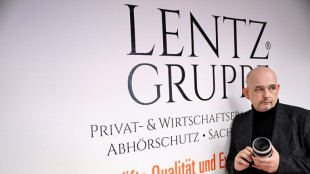
-
 Konstas, Khawaja fall as Australia extend lead to 158 over India
Konstas, Khawaja fall as Australia extend lead to 158 over India
-
Impressive Herbert leads Chargers into playoffs, Broncos denied

-
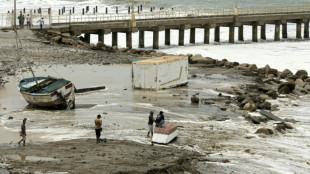 One dead in Ecuador, Peru ports closed amid massive waves
One dead in Ecuador, Peru ports closed amid massive waves
-
NBA hand out suspensions after fracas in Phoenix

-
 Atalanta snatch late draw at Lazio to hold Serie A lead
Atalanta snatch late draw at Lazio to hold Serie A lead
-
Trump sides with Musk in right-wing row over worker visas

-
 Suriname rules out state funeral for ex-dictator Bouterse
Suriname rules out state funeral for ex-dictator Bouterse
-
Alisson tells title-chasing Liverpool to create own history

-
 Israel army says ends raid against 'Hamas centre' in north Gaza hospital
Israel army says ends raid against 'Hamas centre' in north Gaza hospital
-
French skier Sarrazin 'stable' after surgery for crash injuries: federation

-
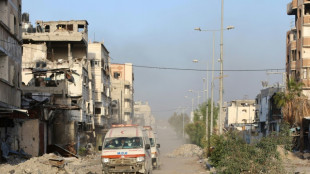 Israeli military confirms north Gaza hospital chief held in raid
Israeli military confirms north Gaza hospital chief held in raid
-
Abbas, Shahzad rock South Africa at start of chase

-
 US deported record 61,680 Guatemalans in 2024: agency
US deported record 61,680 Guatemalans in 2024: agency
-
Double centurion Shah inspires Afghanistan fightback in Zimbabwe

-
 Diallo wants to make 'history' with struggling Man Utd
Diallo wants to make 'history' with struggling Man Utd
-
Putin apologises to Azerbaijan without claiming responsibility in plane crash

-
 Guardiola won't quit troubled Man City
Guardiola won't quit troubled Man City
-
Gaza child amputees get new limbs but can't shake war trauma

-
 Evergreen Brignone powers to Semmering giant slalom win
Evergreen Brignone powers to Semmering giant slalom win
-
Thousands in Georgia human chain as pro-EU protests enter 2nd month

-
 Turkey's pro-Kurd party meets jailed PKK leader
Turkey's pro-Kurd party meets jailed PKK leader
-
WHO chief says narrowly escaped death in Israeli strikes on Yemen airport

-
 Swiss Monney takes maiden World Cup win in Bormio downhill
Swiss Monney takes maiden World Cup win in Bormio downhill
-
De Minaur wins but Australia crash to Argentina at United Cup

-
 EU universal charger rules come into force
EU universal charger rules come into force
-
Evenepoel targets return in time for Ardennes classics

-
 Duffy bowls New Zealand to T20 victory over Sri Lanka
Duffy bowls New Zealand to T20 victory over Sri Lanka
-
Turkey's pro-Kurd party to meet jailed PKK leader on Saturday

-
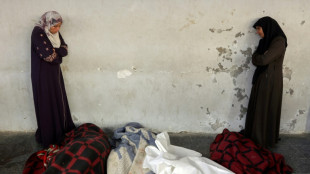 Gaza hospital shut after Israeli raid, director held: health officials
Gaza hospital shut after Israeli raid, director held: health officials
-
Surgery for French skier Sarrazin 'went well': federation

-
 Mitchell, Bracewell boost New Zealand in Sri Lanka T20
Mitchell, Bracewell boost New Zealand in Sri Lanka T20
-
Kyrgios says tennis integrity 'awful' after doping scandals

-
 S. Korean prosecutors say Yoon authorised 'shooting' during martial law bid
S. Korean prosecutors say Yoon authorised 'shooting' during martial law bid
-
Vendee Globe skipper Pip Hare limps into Melbourne after dismasting

-
 Reddy's defiant maiden ton claws India back into 4th Australia Test
Reddy's defiant maiden ton claws India back into 4th Australia Test
-
Doubles partner Thompson calls Purcell doping case 'a joke'

-
 Reddy reaches fighting maiden century for India against Australia
Reddy reaches fighting maiden century for India against Australia
-
Sabalenka enjoying 'chilled' rivalry with Swiatek

-
 Political turmoil shakes South Korea's economy
Political turmoil shakes South Korea's economy
-
New mum Bencic wins first tour-level match since 2023 US Open

-
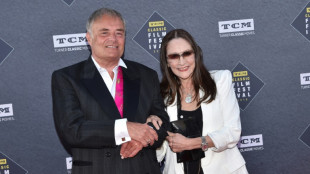 'Romeo and Juliet' star Olivia Hussey dies aged 73
'Romeo and Juliet' star Olivia Hussey dies aged 73
-
Brown dominates as NBA champion Celtics snap skid

-
 Indian state funeral for former PM Manmohan Singh
Indian state funeral for former PM Manmohan Singh
-
France asks Indonesia to transfer national on death row


Netflix series helps heal wounds of Turkey's Jews
A groundbreaking Netflix series set among Turkey's Jews has been an unexpected hit there, challenging taboos and enthralling audiences with its glimpse into a long-overlooked community.
The global success of Turkish television series -- often with government-pleasing narratives -- has made the country a small-screen superpower.
But "The Club" and its sumptuous recreation of 1950s Istanbul is a first, not least because some of the dialogue is in Ladino, the language of Istanbul's Jews which derives from medieval Spanish.
While minorities once flourished in the cosmopolitan capital of the Ottoman Empire, they suffered persecution as it fell and discrimination ever since.
Jews have generally kept their heads down to protect themselves, sticking to the Turkish Jewish custom of "kayades", meaning "silence" in Ladino.
But "The Club" -- which is set around a nightclub in Istanbul's historic European quarter -- puts an end to that silence.
- Pogrom against minorities -
The attacks and persecution that drove many Jews, Greeks and Armenians to leave Turkey in the 20th century are dealt with, including a crippling 1942 tax on non-Muslims and a pogrom against Greeks in 1955 which also unleashed violence against all the other minorities.
"Silence has neither protected us from anti-Semitism nor prevented migration to other countries," said Nesi Altaras, editor of Avlaremoz online magazine run by young Turkish Jews.
"We need to talk, including on political issues that previous generations wanted to avoid," he told AFP.
Less than 15,000 Jews remain in Turkey, down from 200,000 at the beginning of the 20th century.
The majority are Sephardic, whose ancestors fled to the Ottoman Empire after they were expelled from Spain in 1492.
In a rare case of life imitating art, "The Club" became Netflix's number one show in Turkey just as Ankara tried to repair ties with Israel.
While both countries have been historically close, relations have soured badly over Israel's treatment of the Palestinians and remarks by the Turkish president criticised as anti-Semitic.
Indeed until recently, Turkish pro-government dailies regularly published stories seen to be anti-Semitic.
But Israeli President Isaac Herzog made a landmark visit to Turkey earlier this month, where he held talks with his opposite number, Recep Tayyip Erdogan.
Herzog even visited the Istanbul district in which "The Club" is set.
- Fierce debate -
The show -- and particularly the scenes of the pogroms on Istanbul's Istiklal Avenue in September 1955 when mobs lynched minorities and ransacked their shops -- has also sparked a fierce debate in the Turkish media and online about the need to confront history.
"No other TV show featured the anti-Semitic incidents of this period in such a remarkable way," said Silvyo Ovadya, president of the Jewish Museum of Turkey.
"We don't teach this part of history in schools in Turkey. Many Turks have learnt it thanks to the series," Altaras said.
"The series invites us to question the official narrative and ask ourselves, 'What happened to the Jews of Turkey?'" said Pinar Kilavuz, a researcher on Sephardic Jews at Paris-Sorbonne University.
Altaras believes the series has influenced domestic Turkish politics.
"It is no coincidence that the leader of the main opposition party has just included 'healing the wounds of the past' in his campaign, referring to the attacks against minorities," he said.
- 'We're part of this country' -
For Izzet Bana, a musician and an advisor to the series, the show accomplished a "miracle" by recreating the Jewish quarter of his childhood.
"I was worried at first because other shows caricatured Jews. But the series reflects real characters, far from cliches," Bana said.
Despite this progress on screen, Kilavuz said, more needs to be done for Turkey's Jews to feel equal.
"There is a myth about the Ottoman Empire welcoming Jews expelled from Spain in the 15th century," she said.
"It is used to stigmatise anyone asking for equal rights as showing ingratitude," she argued.
Even if everyone is considered equal before the law in Turkey, in practice non-Muslim minorities face huge obstacles, from getting government jobs to opening or repairing churches or synagogues.
It is also rare to find a senior minority figure in government or in state institutions where Sunni Turkish Muslims still dominate.
For Altaras, the series, which is due to come back with a third season, shows Turkish society that Jews were part of "the story of this country".
"We already knew that, but it's good that the Turks realise it too."
L.Henrique--PC

